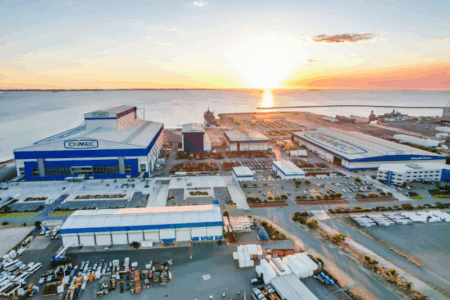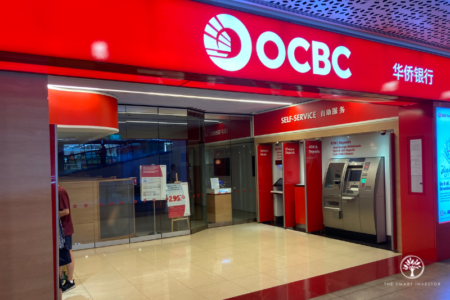Investing is neither black nor white.
That’s because different investors have different goals when investing.
Growth investors, for instance, look for companies that are displaying rapid growth in the hopes of enjoying a capital gain when the share price rises.
Dividend investing, on the other hand, focuses on the dividend-paying ability of a business.
Income-seeking investors tend to care less about the share price and more about whether they can continue receiving their flow of passive income.
But it is not always one or the other.
Most investors exist in shades of grey, meaning they are a mix of both growth and income investing.
I have the same philosophy when building my investment portfolio, seeking a mix of both growth and yield stocks.
Here are three stocks I would buy now with S$15,000.
I intend to allocate this amount equally among all three companies to provide me with a mix of growth and dividends.
Paypal (NASDAQ: PYPL)
Paypal is a technology platform and digital payments company that helps to facilitate transactions between merchants and customers.
The outbreak of the pandemic accelerated the shift towards online payments and helped the company to chalk up a record year.
For 2020, total payment volume (TPV) on its platform surged by 31% year on year to US$936 billion, leading to revenue growing 21% year on year to US$21.5 billion.
Around 73 million net new active accounts were added in 2020, a record, and the company ended the year with 377 million active accounts.
Net profit after tax surged by 71% year on year to US$4.2 billion.
To top it off, Paypal generated US$5 billion in free cash flow for an impressive free cash flow margin of 23%.
The company’s share price has more than doubled from US$107.54 a year ago to the current US$264.43.
With S$5,000, you can afford around 14 shares of the company.
Its 2021 guidance is also positive.
TPV is forecast to grow in the high 20%-level year on year while revenue is expected to grow 19% year on year.
The online shift is likely to be an irreversible trend that should continue to propel the company’s business to new heights.
OCBC Ltd (SGX: O39)
From a pure growth company, let’s shift to one that provides a good mix of growth and yield.
OCBC is one of the three largest banks in Singapore and has a long track record of weathering multiple crises.
For 2020, total income dipped slightly by 7% year on year to S$10.1 billion as the fall in interest rates pressured the bank’s net interest income.
Due to an increase in allowances made for COVID-19, the group’s net profit declined by 26% year on year.
There were clear signs of resilience, though.
Customer loans rose slightly from S$265 billion at end-2019 to S$267 billion last year.
And its private banking arm, Bank of Singapore, saw assets under management inch up from US$117 billion in 2019 to US$121 billion in 2020.
Meanwhile, total loans under moratorium have declined significantly from September 2020 to January 2021, falling from S$23.8 billion to just S$5.7 billion.
OCBC’s CEO expects the net interest margin to stabilise at around 1.5% to 1.55% while reporting that consumer sentiment has improved due to reduced anxiety over the pandemic.
The total dividend declared for 2020 amounted to S$0.318, translating to a 12-month trailing dividend yield of around 2.7% at the last traded price of S$11.79.
With S$5,000, you can buy around 400 shares of the lender to ride the nascent economic recovery.
Should the Monetary Authority of Singapore ease last year’s rules calling on banks to moderate their dividend payments, you could also see some increase in the dividend per share.
Mapletree Commercial Trust (SGX: N2IU)
A great source of dividends would be to hunt for strong REITs to own.
And one of these is Mapletree Commercial Trust or MCT.
MCT owns a portfolio of both retail and commercial properties consisting of VivoCity, Mapletree Business City (MBC) and Mapletree Anson, to name a few.
For the nine months ended 31 December 2020, the REIT reported a slight 1.9% year on year dip in gross revenue.
Net property income inched down 1.2% year on year to S$275.9 million.
The acquisition of MBC II in November 2019 helped to buffer some of the fall in revenue caused by COVID-19.
The gearing level for the REIT remained low at 34% at end-2020, while committed occupancy remained high at 98.1%.
Meanwhile, shopper traffic and tenant sales have recovered to 60% and 90% of their pre-COVID levels for VivoCity.
Trailing 12-month distribution per unit (DPU) stood at S$0.0754, translating to a yield of around 3.6% at a share price of S$2.11.
S$5,000 could garner you around 2,300 shares of the REIT as you await the recovery in tourism.
The reduced tenant relief should also see DPU recover, thus pushing the yield up from current levels.
In our latest special FREE report, we cover eight stocks, consisting of a mix of blue-chips and mid-cap companies, that we believe can ride the recovery and offer investors a great mix of both growth and income. Click HERE to download the report, 8 Singapore Stocks for Your Retirement Portfolio, for FREE now!
Don’t forget to follow us on Facebook and Telegram for some of our latest free content!
Disclaimer: Royston Yang does not own shares in any of the companies mentioned.




